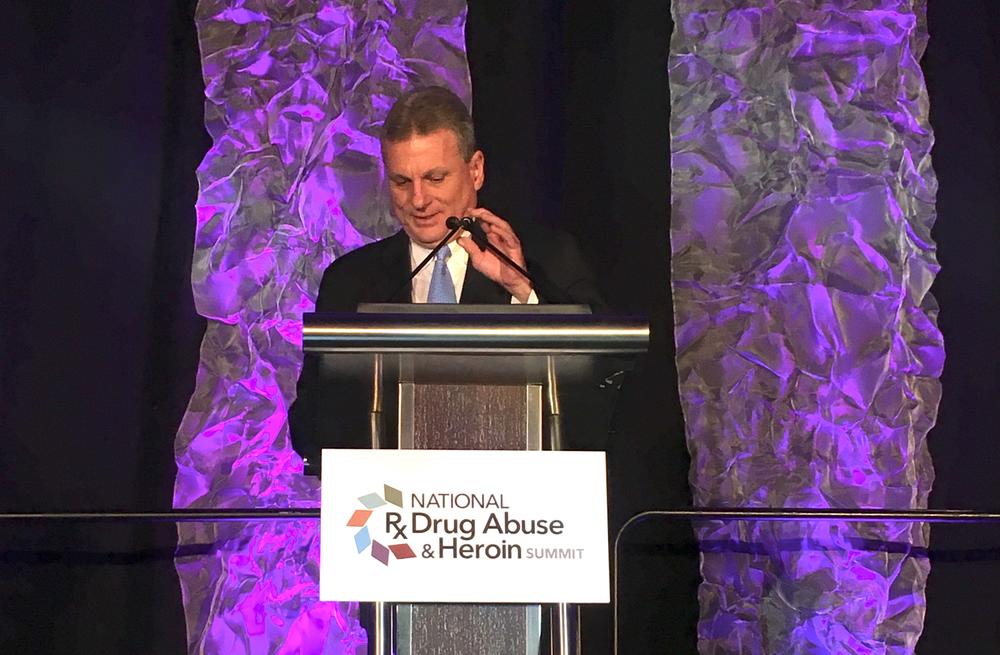Section Branding
Header Content
Georgia Lawmaker Wants To Empower Pharmacists In The Fight Against Opioid Abuse
Primary Content
The only pharmacist serving in Congress said the opioid epidemic needs legislation that empowers his industry.
Substance use disorder keeps men and women in their prime out of work and costs the economy billions of dollars, U.S. Rep. Buddy Carter (R-Pooler) said Tuesday during the National Prescription Drug Abuse and Heroin Summit in Atlanta. The conference is the largest on opioid addiction and includes more than 3,000 officials, experts and advocates.
The congressman, who owns Carter’s Pharmacy Inc., watched the rise of prescription drug abuse and heroin addiction over the last 30 years. Now, he’s sponsoring HR 4275, Empowering Pharmacists in the Fight Against Opioid Abuse Act.
The bill requires the Drug Enforcement Administration to develop and disseminate training programs and materials. The training will include the circumstances under which a pharmacist may refuse to fill a controlled substance prescription suspected to be fraudulent, forged or indicative of abuse or diversion; and federal requirements related to such refusal.
While in the minority, pharmacists who act as pill pushers must be stopped, he said.
“The first time a doctor writes a prescription for Xanax, Soma and OxyContin in quantities of 180, they ought to be dinged right then,” Carter said. “There is never a reason that a patient would need a quantity of 180 of those three drugs at one time. When that happens that ought to be the first sign that we've got to do something about that physician, now.”
Carter said he’s disheartened by the fact that longevity has actually decreased for Americans. It’s the second time in two years, according to the Centers for Disease Control and Prevention.
“We've gone from 78.7 years of age that we're expected to live to (78.6),” Carter said. “And it's been attributed to the opioid epidemic. That's how severe this problem is.”
Prevention and proper treatment are where legislators need to focus. Part of stopping more people from becoming addicted to opioids comes from better education of health care providers.
“How do you prevent the drug abuse? We can do that through limiting the number of pills,” Carter said. “We can do that through enforcement of an education of health care professionals and how we actually go about prescribing these medications.”
For the estimated 2.5 million people struggling with daily addiction, however, the task is tougher. Drug-assisted and therapy treatments that work are necessary as addiction is a lifelong challenge, Carter said.
“We all know that relapse is a problem and is something that we have to work on,” Carter said, cautioning that some in Congress think the answer is throwing more money at the problem.
He said the legislation addressing the opioid epidemic is bi-partisan because addiction doesn’t care whether someone is a Democrat or Republican.
Addiction is real and just as society had to accept cancer and AIDS as diseases, so must we accept substance use disorder.
“It's so sad when you hear these stories about parents who are writing obituaries that say a ‘sudden illness’ or say ‘suicide’ or whatever just because they don't want to mention addiction,” Carter said. “Folks we've got to get over that stigma. I've seen it I've seen it in my practice of pharmacy. I've seen what these drugs can do.”


